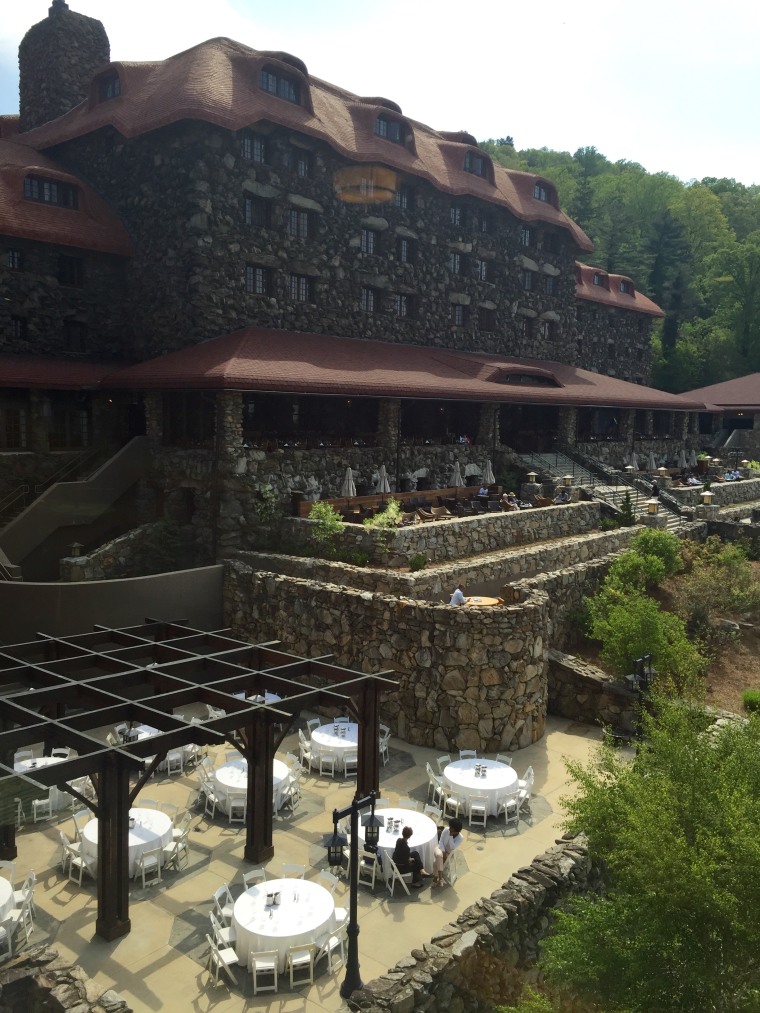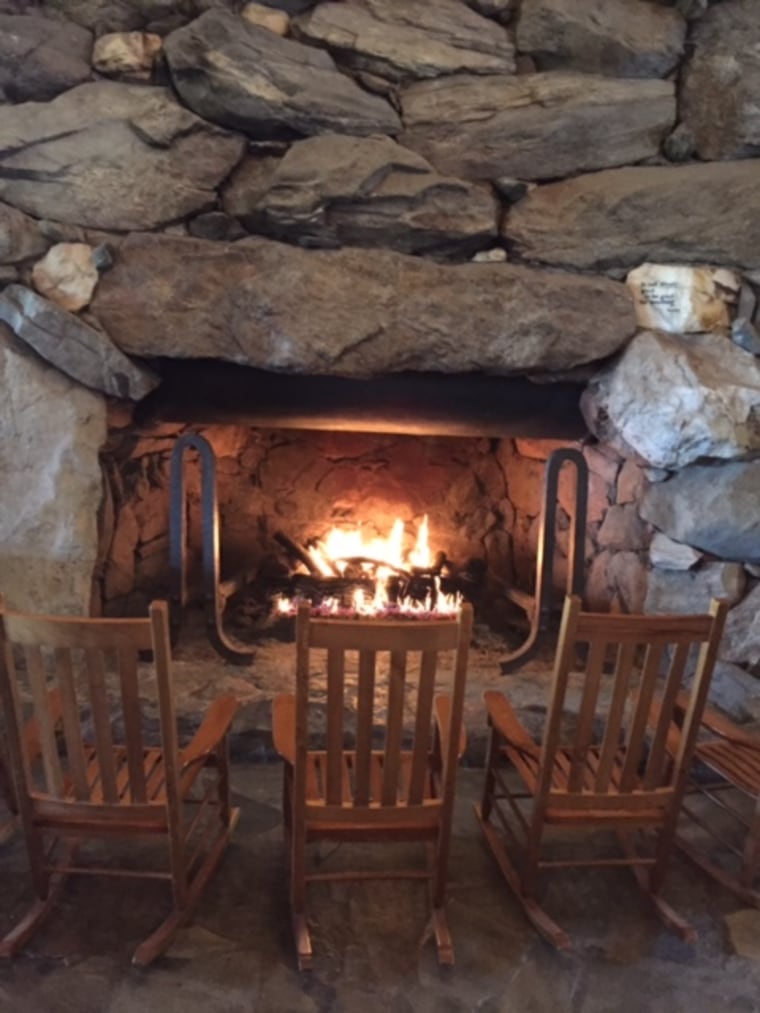The lush valleys and mountains of Asheville, N.C., are eight hours and a world away from the tragedy, violence and poverty of Baltimore.
This week, hundreds of leaders of civil rights and social justice organizations descended on this serene backdrop like soldiers coming off a battlefield for the W.K. Kellogg Foundation’s fourth America Healing Conference. The four-day event concluding Thursday was an opportunity to swap strategy, regain focus and recharge before returning to a fight that, for many, has been particularly traumatic in recent months.
Kellogg vice president Gail Christopher said the foundation’s approach to this year’s conference—including a first-ever session on self-care—factored in the potential toll of recent events on many attendees.
“Given all the pain that’s going on, when every single week there’s another story of a young black male that’s been killed, I realized we’re grief-stricken,” she said. “We knew that people would be bringing that energy in and we knew we had to find a way to have resilience … for them to have opportunities to know that they are valuable human beings.”
...Everybody here is risking their physical well being … but also one’s mental well being. When you are flying from tragedy to tragedy, it can wear the soul raw.
The attendees -- most of whom are doing work funded by the foundation -- gathered at the 100-year-old Grove Park Inn, a resort atop the aptly-named Sunset Mountain. Between planning sessions and panels, they relaxed in rocking chairs overlooking the hills, and dined in fresh air as bees buzzed nearby.
“The location helps … It’s real laid back and calm,” said Darel Ross II, co-director of LINC Community Revitalization based in Grand Rapids, Mich. “It’s hard not to be relaxed, but this is 500 people who spend very little time relaxing. We don’t stop to pause day in and day out; we’re usually strategizing. This is really more of taking care of yourself so you can continue to fight.”
NAACP President Cornell Brooks likened the week to retreats taken by civil rights leaders seeking respite from the struggle decades ago at remote locales like the Penn Center in South Carolina.
“In the same way that people on the frontlines of justice have always had the need to stand back and reflect, that’s what this occasion provides,” said Brooks, who briefly attended the conference.
“To leave the blocks of semi-occupied and abandoned buildings for the mountains of North Carolina is a rare moment,” he said. “It’s critically important because everybody here is risking their physical well being … but also one’s mental well being. When you are flying from tragedy to tragedy, it can wear the soul raw, but when you have an opportunity to break bread and share a drink with a friend, it helps.”

The snapshot of tranquility could not have been more opposite from their daily realities spent chipping away at persistent and systemic racial disparities.
In addition to an already robust list of priorities that includes voting rights, the school-to-prison pipeline, environmental justice, and health inequity, police violence loomed large on the agenda for activists this year and has emerged as the newest long-term campaign in the struggle for progress in America.
Part of recharging is also the supportive environment created by shared experiences, said civil rights lawyer Barbara Arnwine, who has attended the conference several times.
“It’s designed to affirm the community, to tell these activists that they are important, that the work they do is valuable,” Arnwine said. “It’s a lovefest, to see people you have respect for. For it to be held in the midst of one of the most robust, active times in our country of addressing racial justice … so many of us are involved in that struggle. It’s painful. This is different than voting rights. Police reform is centered around people being killed. There’s grief, wounds, loss.”
When he left what he called a “war zone” in Baltimore to head to the conference, Michael Scott of Equity Matters said what he couldn’t leave behind was the work undone, the noise of the city, the guilt of not being there to help.
“I came in so distressed,” he said. “The first day, I couldn’t release. I had this look on my face. The phone was constantly blowing up … I wasn’t present. I was still very much in Baltimore.”
By the second day, things were beginning to change. He joined other participants in a day-long healing session, discussing his work and hearing about what others were doing in their communities.
Among his group members was Shirley Sherrod, the former Department of Agriculture employee who was fired amid a political firestorm after she was seen in excerpted video footage that made her comments—later proven to be a lesson in overcoming prejudice—appear racist.
Slowly, Scott said he began to engage.
“(Sherrod) talked about centering yourself,” he said. “My group ended up reminding me that I had resources, options … an opportunity to be meditative and decisive. Just talking that out loud with people who felt like authentic partners was therapeutic.”
In between, he swam, biked, practiced qigong, surrounded by nature’s beauty and the affirmation of his peers.
“I slept well, finally,” Scott said. “I got good food, I had a glass of wine, I talked to a friend … By the last evening, I was like, ’I’m alright.’”
As Scott headed back to Baltimore on Wednesday, he described how he felt as “totally relaxed.”
“I'm in a good place,” he said. “I'm ready to work and love all people and try to build.
I can listen, because I was listened to.”
